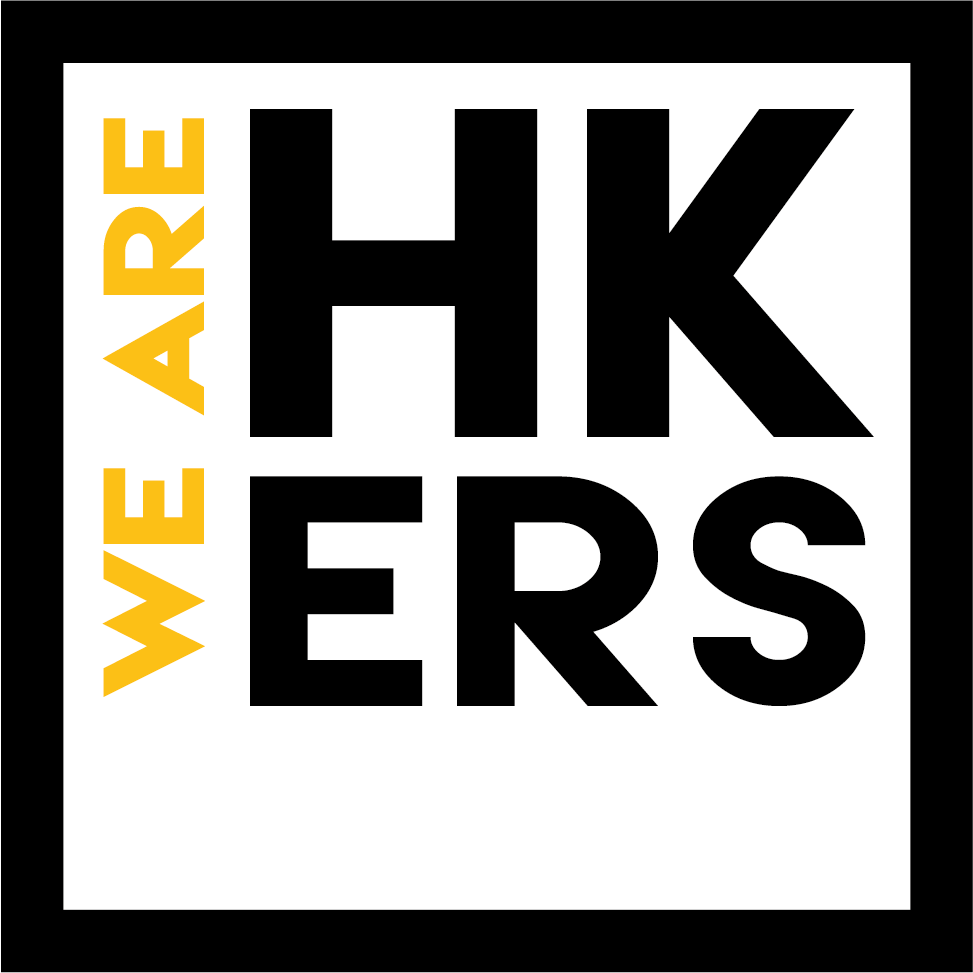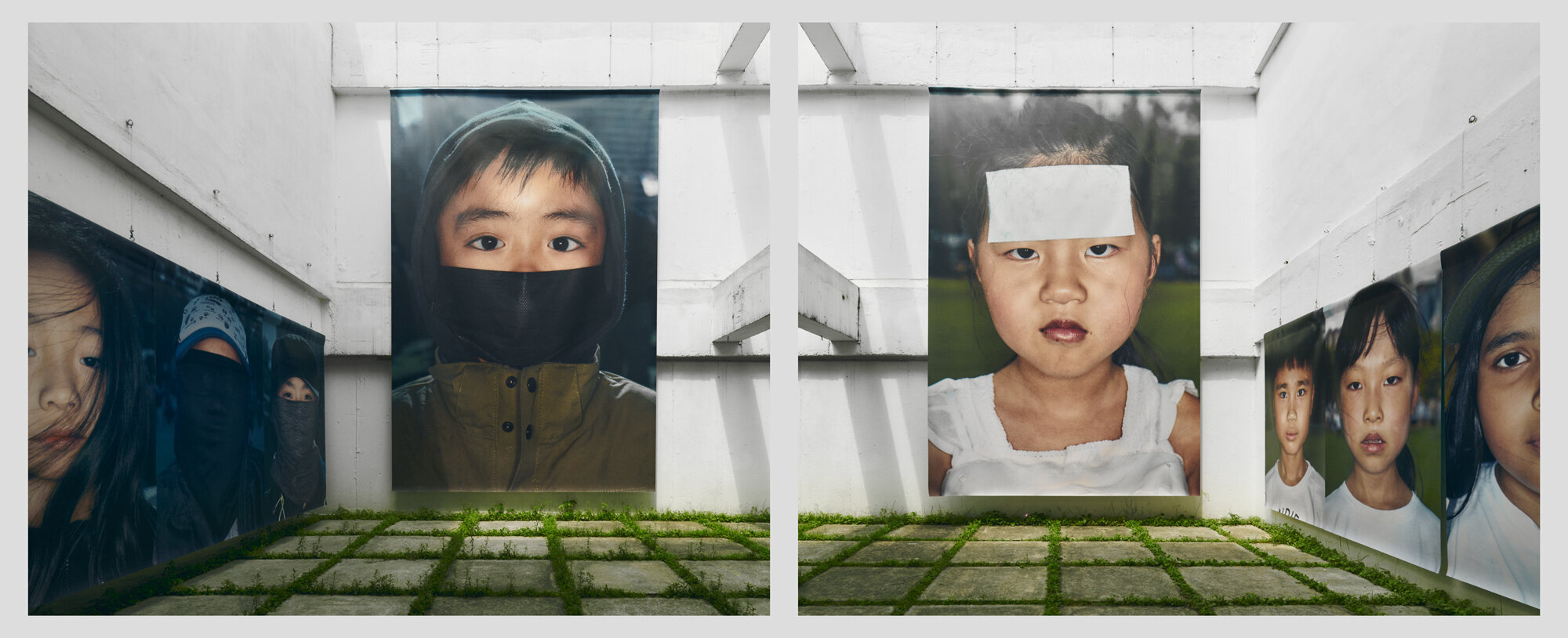【Video】Anthony Fan | Recording and Reflecting on History and Societal Changes Through Portraits
Anthony Fan, professionally known as Fan Kar-Long, is currently a full-time photographer. His photography journey began when he was in his second year of surveying studies at the University of Hong Kong where he started off taking portraits of fellow hall mates and guests in his student residence. He has remained curious about people and reads public figures’ biographies and interviews. He shoots for publications and advertisements and also works on personal photography projects. He is recently holding a personal photography exhibition ‘My Portrait Diary - 18 Children’ * .
“What’s precious about photography is the dynamic between presumption and the unpredictable, as well as the interaction among the photographer, the subject, and the environment. Besides capturing the subject’s face and story, a portrait can channel the photographer’s thoughts. Therefore, it is an artistic creation by both the photographer and the subject.”
Journalist: Nata
Translator: Chelsea BB
Photos: JET, Anthony Fan’s Website
Videographer: JM、Kwankung、Crazy Man
Video Editor: Tim
Back in secondary school, I had multiple interests including many music and sports activities; however, my passions rarely lasted long, and I didn’t spend the time to learn or study them diligently. When I was in university, I wanted to find something that I was truly passionate about into which I would devote a lot of time. After some exploration, I finally came to photography.
When I first started, I fought for opportunities to take portraits for interviews. I was also invited to take pictures of the participants and guests during my student residence’s high table dinners. These opportunities slowly helped me cultivate my knowledge and interest in portrait photography. After I graduated from university, I did not think twice and became a full-time photographer.
Commercial photography versus personal photographic endeavours
I am currently taking up commissions for a living as well as shooting my own projects at the same time. Commercial photography has helped with cementing my basic photography skills and techniques like lighting and composition. Photography is just like painting; the lighting is your paintbrush and it can express and portray different feelings and effects. Commercial photography has also taught me to understand management and administration, from executive tasks and production to how to arrange and execute a photography project. Such training is reflected in my personal photography projects as I always ensure that I have a thorough plan beforehand.
My personal photography projects are important in that they are expressions of my thoughts and feelings. If photography is solely for the purpose of making a record, I’d rather install CCTV. The angle and lighting reflect the photographer’s subjective thoughts for every piece of photography. Photography is thus an art and photographers are not just executors or technicians, but are artists.
Portraits are the reflection of our society
My early work imitated other photographers’ styles or themes as I hadn’t discovered my own style. Not until 2018 did I start thinking about the meaning of shooting portraits. At that time, I had read several articles reflecting on the 2014 Umbrella Movement, as trials related to the Movement were to begin. It was then that I had the idea of taking a portrait of Professor Benny Tai* (who quickly agreed perhaps because I was a University of Hong Kong student which is where he taught). Personally, taking portraits is more than just a personal interest as it is a medium for reflection, as it records history and society.
Before a shoot, preparation (like understanding the background and experience of the subject) is a must. However, after interacting with public figures in person, there are instances where the real life impression is very different from how they are portrayed in media. Therefore, even with ample preparation and research, the feeling in that moment is far more important. What’s precious about photography is the dynamic between presumption and the unpredictable, as well as the interaction among the photographer, the subject, and the environment. Besides capturing the subject’s face and story, a portrait can channel the photographer’s thoughts. Therefore, it is an artistic creation by both the photographer and the subject.
The exhibition of ‘My Portrait Diary - 18 Children’ was a completely unexpected result of my original intentions. On 9 June 2019, one million Hongkongers took to the streets to protest against the Fugitive Offenders and Mutual Legal Assistance in Criminal Matters Legislation (Amendment) [aka Extradition Law Amendment Bill/ELAB]. Through taking portraits, I hoped to record everything I saw that day. In the end, I had captured the portraits of 60-70 people of different age groups. However, through the selection process, I found children’s faces the most interesting, and thus chose the portraits of nine different Hong Kong children for a series. Six months later (8 December where 80,000 people protested), I extended the portrait series to record the changes of our society.
These changes may have been subtle, but could be detected from their small but gloomy facial expressions and simple attire. These faces not only represent a generation, but are inclusive of all Hongkongers in terms of the collective memories and feelings throughout the months.
Inviting children to get their photos taken on the spot (while obtaining parental consent) is just like asking a stranger for their number. You need to gain their trust, and you cannot force them. Being rejected is part of the process and experience. I was never worried that I would not find suitable subjects as Hong Kong has many people after all (haha).
‘My Portrait Diary - 18 Children’ could be called a milestone and a breakthrough for my career. While planning the exhibition, I understood that artwork needed to blend well with the venue. Some might ask ‘why do we still need to go to an exhibition in real life when there are books and the Internet?’ I think exhibition spaces add another layer of meaning and interpretation to the works themselves. This exhibition, for example, is in a semi-open space where sunlight shines through. Coming at different times of the day could bring about different experiences due to the changes in lighting.
Through this exhibition, I hope to connect with the general public and create resonance, and let the audience reflect upon themselves on what they can do for Hong Kong.
Growing up in the digital age, photography seems to be very accessible. However, I think the difference between the work of an ordinary person and a photographer’s is in the aesthetics. First, a photo needs to be attractive to be appealing and in turn to convey a message to its audience. Therefore, anyone can be a photographer if you understand aesthetic sense and possess photography skills. The study of photography is a lifelong affair and its endless possibilities allow us to strive to improve ourselves.
“I am Anthony Fan, I am a HKer.”
Support our Journalism with a Contribution
Many people might not know this, but despite our large team of contributors, which we are immensely grateful for, We Are HKers is still a small bootstrapped group that runs on no outside funding and loans. Everything you see today is built on the backs of warriors who have sacrificed opportunities, time, meals and sleep to help give HKers all over the world a voice and keep our culture alive.
However, we still face many trials in the running of our platform, from finding the necessary equipment for our video interviews, to subscribing to the necessary tools to facilitate our remote work process of our global team, to trying not to get fired from our main jobs as we run this project secretly in the background, and to keeping our platform running and storing our files securely.
We hope you consider making a contribution, so we can continue to provide you with moving stories of HKers all over the world and keep our heritage and culture alive. Even a £1 contribution goes a long way. Thank you for everyone’s support. We love you all and can’t appreciate you guys enough.
**Please note that your support of We Are HKers Ltd. does NOT constitute a charitable donation. We really appreciate your support in independent journalism. If you have any questions about contributing to We Are HKers, please contact us here.
- February 2022
- December 2021
- August 2021
- May 2021
- April 2021
- March 2021
- February 2021
- January 2021
- December 2020
- November 2020
- October 2020
- September 2020
- August 2020
- July 2020
- June 2020
- May 2020
- April 2020
- March 2020
- February 2020
- January 2020
- December 2019
- November 2019
- October 2019
- September 2019
- July 2019
- June 2019
*Prof Benny Tai: associate professor in Law at the University of Hong Kong, best known for being one of the initiators of the 2014 Occupy Central Movement (which was a large part of the support for the Umbrella Movement in late September to early December 2014 in Hong Kong)
















